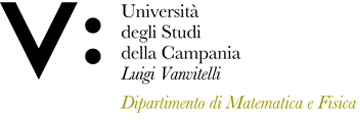Ferdinando ZULLO
Insegnamento di GEOMETRIA ALGEBRICA
Corso di laurea magistrale in MATEMATICA
SSD: MAT/03
CFU: 8,00
ORE PER UNITÀ DIDATTICA: 64,00
Periodo di Erogazione: Secondo Semestre
Italiano
| Lingua di insegnamento | ITALIANO |
| Contenuti | Sarà fornita una prima introduzione alla teoria delle varietà algebriche affini su campo algebricamente chiuso, focalizzando poi l’attenzione sulle varietà 1-dimensionali piane (curve), nel caso affine e nel caso proiettivo, con una breve applicazione alla teoria dei codici. |
| Testi di riferimento | W. Fulton: Algebraic Curves, an introduction to Algebraic Geometry, disponibile in http://www.math.lsa.umich.edu/∼wfulton/. |
| Obiettivi formativi | Conoscenza e capacità di comprensione (knowledge and understanding): |
| Prerequisiti | Elementi di teoria degli anelli e di teoria dei campi, nozioni fondamentali di geometria affine e proiettiva. È consigliabile aver sostenuto o almeno seguito l’insegnamento della laurea Magistrale Algebra Commutativa. |
| Metodologie didattiche | L'insegnamento si articola in 64 ore (8 CFU) di didattica frontale. Durante il corso saranno presentati esempi ed esercizi, in parte svolti durante le lezioni in parte assegnati allo studente che dovrà risolverli in autonomia. |
| Metodi di valutazione | La prova orale consiste in: |
| Altre informazioni | Per l’orario di ricevimento, si rinvia alla sezione didattica del sito web del docente. Per il materiale didattico distribuito durante il corso e il programma d’esame dettagliato si rinvia al sito e-learning di Ateneo, dove sarà attivato il corso “Geometria Algebrica” a cui gli studenti iscritti avranno accesso con le credenziali di Ateneo. |
| Programma del corso | Premesse e richiami di teoria degli anelli: anelli noetheriani e teorema della base di Hilbert, estensioni trascendenti e grado di trascendenza. |
English
| Teaching language | Italian |
| Contents | The goal of this course is to give a basic knowledge of foundations of algebraic geometry with particular regard to the case of affine varieties and planar algebraic curves, with an application to the theory of error-correcting codes. |
| Textbook and course materials | W. Fulton: Algebraic Curves, an introduction to Algebraic Geometry, disponibile in http://www.math.lsa.umich.edu/∼wfulton/. |
| Course objectives | At the end of the course, the student will be able to state and prove basic results on algebraic varieties and algebraic planar curves, expressed in a rigorous mathematical language and will be able to read more advanced text books. |
| Prerequisites | A first course in Algebra and a first course in Analysis, the first two courses in Geometry. |
| Teaching methods | Teaching methods: |
| Evaluation methods | The oral examination consists in: |
| Other information | Teaching materials: |
| Course Syllabus | Algebraic Preliminaries |








